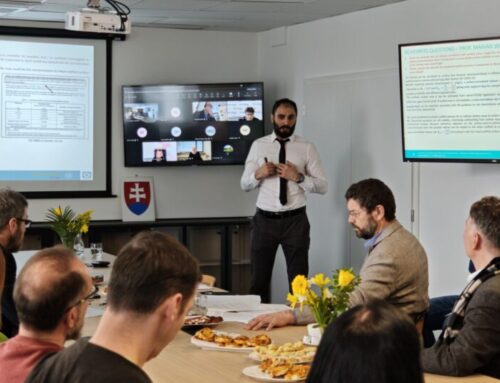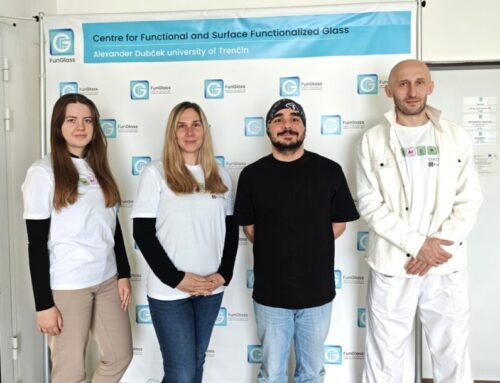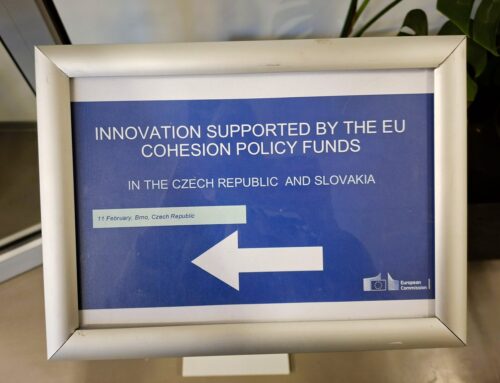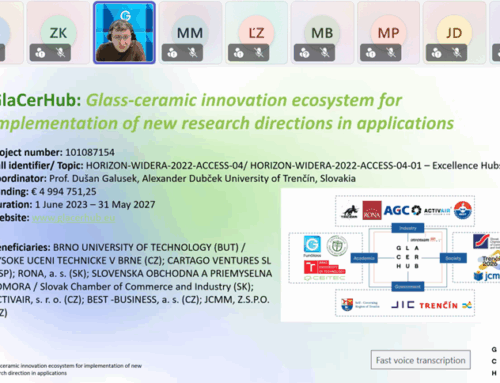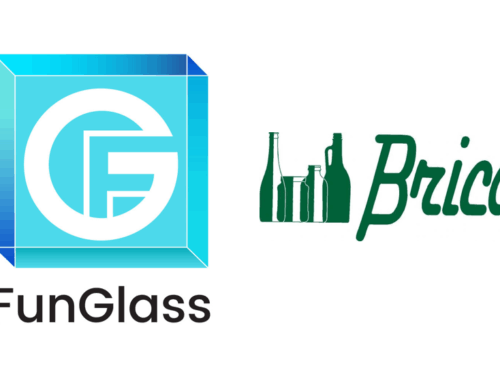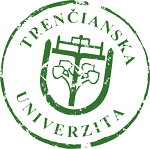PhD Students from AGH University of Krakow Complete Research Internships at FunGlass Centre
We are pleased to share the experiences of two PhD students from the AGH University of Krakow, Poland, who recently completed internships at the FunGlass Centre as part of the JECS Trust Mobility Project supported by ECERS. Kinga Kowalska and Piotr Pańtak, both enrolled in the PhD in Chemical Engineering program, conducted cutting-edge research in the Biomaterials Department under the supervision of Dr. Martin Michálek and colleagues.
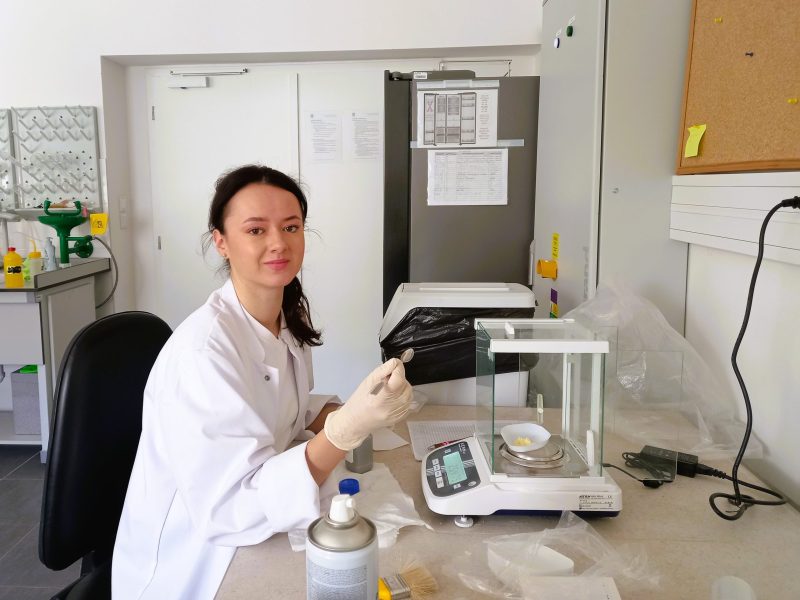
Kinga Kowalska spent one month at the FunGlass Centre, working on a project titled “Bioceramic Bone Scaffolds Modified with Bioactive Glass.” Under the guidance of Dr. Martin Michálek and Dr. Germán Andrés Clavijo Mejía, she focused on the development of borate-based bioactive glasses doped with bismuth, synthesized through the melt-quenching technique. The goal of her project was to combine these glasses with β-tricalcium phosphate to create composite scaffolds suitable for bone replacement applications. The incorporation of bismuth was intended to enhance the radiopacity of the scaffolds. During her internship, she worked with several advanced techniques including Thermomechanical Analysis (TMA), Raman Spectroscopy, X-ray phase composition analysis, and in vitro bioactivity testing using the Kokubo test.
Reflecting on her experience, Kinga shared: “I am delighted to have worked in such a collaborative and experienced group. The atmosphere at FunGlass was not only professional, but also welcoming and supportive. As the name suggests, it truly is fun with glass.”
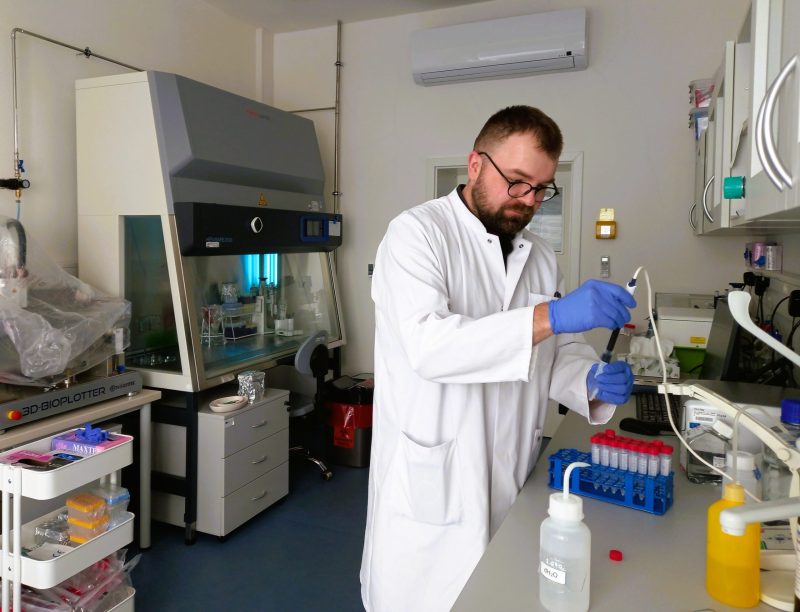
Piotr Pańtak completed a two-month internship at the FunGlass Centre, also within the Biomaterials Department, under the supervision of Dr. Martin Michálek. His project, titled “Development and Characterization of Novel β-TCP-Based Composite Scaffolds,” aimed to develop composite scaffolds for bone regeneration applications. These scaffolds were based on β-tricalcium phosphate and improved through a dual strategy: surface coating with chitosan and ionic modification using biologically active dopants such as strontium and bismuth. The coatings were designed to increase mechanical stability and serve as carriers for antibacterial agents, while the dopants were intended to boost osteogenic and antibacterial properties. Piotr applied techniques such as Inductively Coupled Plasma Optical Emission Spectroscopy (ICP-OES), in vitro bioactivity testing (Kokubo test), and biological studies to assess the performance of the scaffolds.
He commented on his experience: “I am truly grateful for the opportunity to take part in this project and to work alongside such a skilled and collaborative research team. I had the chance to gain hands-on experience with biomaterials based on calcium phosphates. The atmosphere within the group was not only professional and well-organized, but also welcoming and encouraging, making the entire experience both educational and enjoyable. This internship has been an important step in my academic development and has strengthened my motivation to pursue further research in the field of biomaterials.”
We extend our sincere thanks to Kinga Kowalska and Piotr Pańtak for their excellent collaboration and valuable contributions to our centre. It was a pleasure to host such enthusiastic and dedicated researchers, and we wish them continued success in their academic and professional journeys.
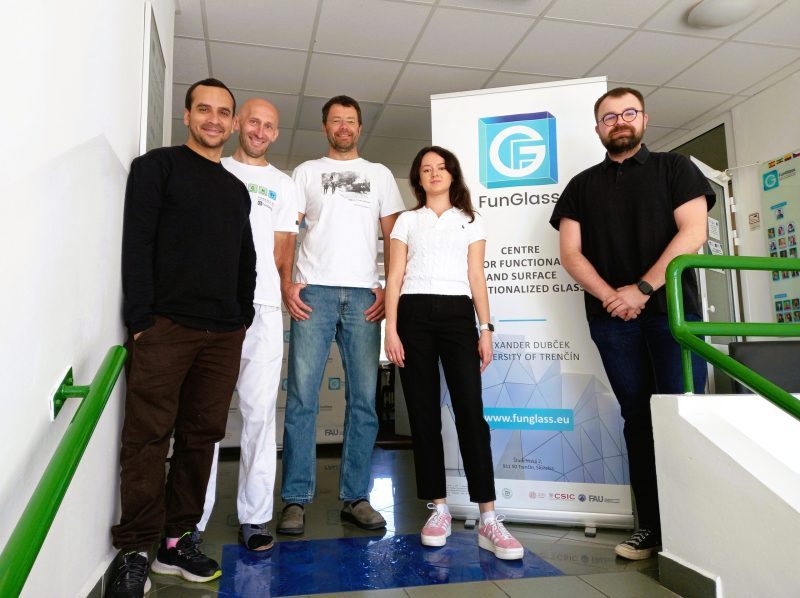
From left: Dr. Germán Andrés Clavijo Mejía, Dr. Martin Michálek, Prof. Dušan Galusek, Kinga Kowalska and Piotr Pańtak


